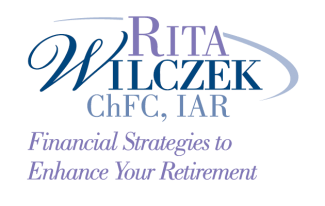Starting a Roth IRA for a Teen
by Rita Wilczek on Aug 20, 2020
Starting a Roth IRA for a Teen
This early financial decision could prove helpful over time.
Provided by Rita Wilczek
Want to give your child or grandchild a great financial start? A Roth IRA might be a choice to consider. There are many reasons why starting a Roth IRA for a teenager may be a sound financial strategy. Read on to learn more about how doing this may benefit both of you.
Tax-free benefits during retirement. Setting up a Roth IRA for the teenager in your life could prime them to have more retirement savings. Plus, a Roth IRA has the potential to accumulate over the years, and the owner may be able to better manage their tax burden if they withdraw the money after age 59½.1
For example, a 19-year-old who contributes $5,000 a year to a Roth IRA, which earns 8% for 40 years, would be positioned to have about $1.4 million by age 59. Of course, this is a hypothetical example that’s used for illustrative purposes only. It is not representative of any specific investment or combination of investments. Actual results will fluctuate.2
Greater earning potential, thanks to the magic of compound interest. Setting up a Roth IRA for a teenager is a great way to introduce them to basic financial concepts, such as compound interest. Giving your teen a hands-on learning experience may help them understand the value of saving for the future. You might also be facilitating your child or grandchild to develop lifelong financial habits.3
Looking ahead to the future. If money is withdrawn before age 59 ½, there may be a penalty assessed. This is typically a 10% I.R.S. penalty, but in some circumstances, it can be more. There is, however, a notable exception. Up to $10,000 of earnings can be taken out of a Roth IRA at any time if the money is used to buy a first home. In this particular case, the I.R.S. waives the early withdrawal penalty. Should your teenager become a parent someday, a portion of those Roth IRA assets might also be utilized to pay college tuition costs for themself or their child.1,4
Keep in mind that this article is for informational purposes only. It's not a replacement for real-life advice, so make sure to consult your tax, legal, and accounting professionals before modifying any Roth IRA strategy.
Rules for gifting a Roth IRA. Setting up a Roth IRA for a teen means that you can gift them some of the funds to get it started, provided that your teen is earning income. So, if your 15-year-old has earned $6,000 at a summer job, you can gift them up to $6,000 (the maximum annual contribution) to invest in a Roth IRA. The amount gifted or contributed cannot exceed the teen’s income, however, and the annual contribution limits to a Roth IRA still apply. What’s more, you may also realize a tax perk. If you make the initial contribution to the Roth IRA as a parent or grandparent, that money can count as a gift within your $15,000 yearly gift tax exclusion ($30,000 for a married couple).5
There are a few things to consider when setting up a custodial Roth IRA. Setting up a Roth IRA for a minor is often referred to as a custodial IRA. Until the child is able to take it over, you act as the custodian of the account. Individual state laws determine when the minor child is able to take over management of the Roth IRA for themselves.1,4
You should always consult with a tax professional to ensure that you and your minor child are following all federal and state regulations. If this is something you’re considering doing for a loved one, I’d be happy to talk with you further.
Rita Wilczek may be reached at (952) 542-8911 or rwilczek@hirep.net
This material was prepared by MarketingPro, Inc., and does not necessarily represent the views of the presenting party, nor their affiliates. This information has been derived from sources believed to be accurate. Please note - investing involves risk, and past performance is no guarantee of future results. The publisher is not engaged in rendering legal, accounting or other professional services. If assistance is needed, the reader is advised to engage the services of a competent professional. This information should not be construed as investment, tax or legal advice and may not be relied on for the purpose of avoiding any Federal tax penalty. This is neither a solicitation nor recommendation to purchase or sell any investment or insurance product or service, and should not be relied upon as such. All indices are unmanaged and are not illustrative of any particular investment.
Citations.
1 - USNews.com, February 21, 2020
2 - Bankrate.com, July 23, 2020
3 - Forbes.com, February 13, 2020
4 - USNews.com, January 1, 2020
5 - IRS.gov, January 16, 2020
